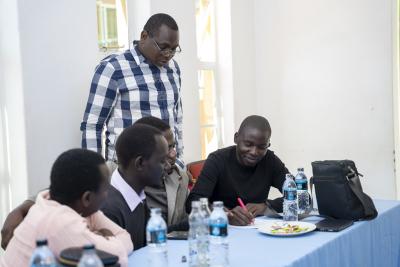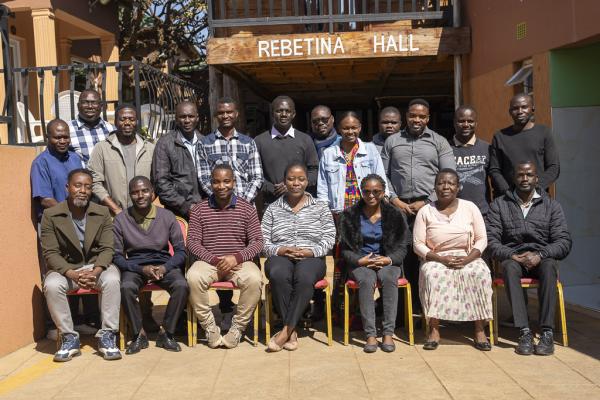In a bid to improve cancer care in Malawi, Partners In Health (PIH) Malawi, in collaboration with the Ministry of Health and with funding from a Pfizer grant, conducted a two-day capacity-building training to enhance the use of Tumor Boards, critical multidisciplinary platforms for cancer case management.
Held from June 12–13 in Dedza, the training brought together oncology teams from the country’s four central hospitals, Kamuzu Central Hospital (KCH), Queen Elizabeth Central Hospital (QECH), Mzuzu Central Hospital, and Zomba Central Hospital. The goal was to standardize the structure and operation of Tumor Boards and to improve documentation and data management practices.
During the session, a Senior Mental Health Clinical Associate from the Non-Communicable Diseases (NCD) and Mental Health division under Curative and Medical Rehabilitation Services, Madalitso Makhalira, emphasized the importance of the initiative, highlighting the gaps it aims to address in alignment with national health priorities.
“Tumor Boards are a game-changer in how we manage cancer cases as the initiative will fill critical gaps in coordination and documentation, while ensuring that patients benefit from a comprehensive, team-based approach to care,” Makhalira said.

Health experts share valuable input on Tumor Boards.
Joseph Mizere
According to Felix Leonard Magwira, PIH’s National NCD Program Manager, the training marks a major step toward aligning Malawi’s cancer care with global best practices.
“By formalizing how Tumor Boards operate and enhancing collaboration among specialists, we’re building a more resilient cancer care system that can better serve patients across the country,” Magwira explained.
National Cervical Cancer Program Coordinator, Blair Sibale, echoed these sentiments and highlighted the impact of a standardized Tumor Board system:
“This platform will not only generate valuable data on confirmed cancer cases, which has often been missing, but it will also improve the quality of care by bringing together all relevant experts to make joint decisions,” he said.
The training is part of a broader Pfizer-funded initiative aimed at strengthening cervical and breast cancer services in Malawi. The project targets the country’s three highest-burdened districts and seeks to save lives by improving cancer screening, diagnosis, treatment access, and data-driven decision-making.

Health experts offer invaluable insights during Tumor Board meetings, where a multidisciplinary team collaborates to assess and discuss complex cancer cases.
Joseph Mizere
Key objectives include: enhancing early detection and diagnosis at primary and secondary care levels, improving access to cancer treatment, strengthening cancer data collection and utilization
The initiative supports APZU’s Strategic Plan and aligns with Malawi’s Health Sector Strategic Plan III (HSSP III), as well as PIH’s global mission to build strong, integrated health systems that effectively respond to disease burdens. The program will initially be implemented at Mzuzu Central Hospital, Balaka, and Neno District Hospital.
By equipping cancer teams with the knowledge and tools to run effective Tumor Boards, PIH Malawi is laying the foundation for more coordinated, evidence-based cancer care in Malawi. As the country continues to face a rise in cancer cases, investments in systems and collaboration are vital to ensuring timely diagnoses, appropriate treatments, and ultimately, better outcomes for patients.
